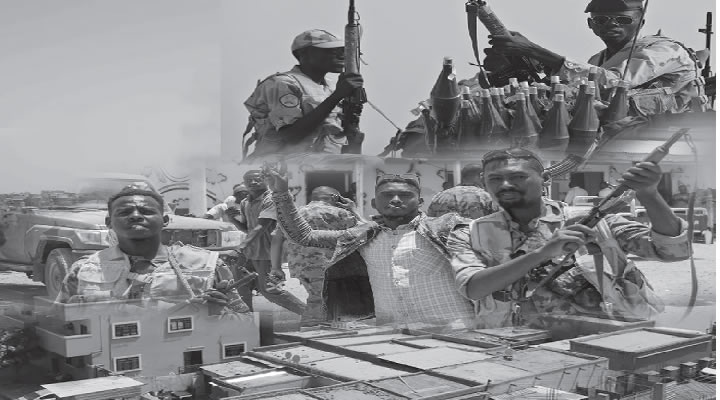
The ongoing conflict in Sudan displayed no signs of diminishing, prompting the United Nations to issue a grim cautionary warning on Friday about the consequences of the war, which it described as a threat that could “consume” the entire country.
According to witnesses, Rapid Support Forces initiated a fresh assault on the last holdouts at crucial armored corps base in the southern part of the capital.
This base has been a focal point of contention between the army and the RSF since Sunday, with RSF stating that they have assumed control of majority of the base with only few pockets of resistance remaining.
The conflict between army chief Abdel Fattah al-Burhan and RSF Commander Mohamed Hamdan Dagalo has been ongoing since April 15.
The conflict has expanded from Khartoum and the western Darfur region to include Kordofan and Jazira state. This escalation has resulted in the loss of thousands of lives and the displacement of millions from their homes.
“The war in Sudan is fuelling a humanitarian emergency of epic proportions,” Martin Griffiths, under-secretary-general for humanitarian affairs and emergency relief coordinator at the United Nations, said Friday.
“This viral conflict –- and the hunger, disease and displacement left in its wake –- now threatens to consume the entire country,” Griffiths added in a statement.
According to conservative calculations by the Armed Conflict Location & Event Data project, approximately 5,000 individuals have lost their lives.
However, the ongoing battles have hindered the retrieval of the remains of numerous individuals believed to have perished.
According to UN statistics, over 4.6 million individuals have been compelled to evacuate their residences due to the ongoing conflict.
No food
Humanitarian organizations have maintained a significant presence in Sudan, as millions of Sudanese have been dependent on food and various forms of aid for several years.
As the conflict continues without any signs of abating, the United Nations reports that over half of the country’s population is in need of humanitarian assistance.
Experts have cautioned that over six million individuals in Sudan are teetering on the edge of famine, with Griffith underscoring on Friday that the nation is now even more vulnerable.
“The longer the fighting continues, the more devastating its impact. Some places have already run out of food,” Griffiths said.
“Hundreds of thousands of children are severely malnourished and at imminent risk of death if left untreated.”
The UN official said that in Kadugli, in South Kordofan state, “food stocks have been fully depleted, as clashes and road blockages prevent aid workers from reaching the hungry.”
Jens Laerke, spokesperson for Griffiths, addressed reporters in Geneva on Friday, highlighting two significant challenges the UN encounters in relation to Sudan: inadequate funding and restricted access to the distressed population due to security concerns.
Bureaucratic hurdles are additionally impeding efforts to direct aid to Sudan. Entry visas for UN and other aid personnel have been reduced by the country, he noted.
Consequently, shipments of aid are stranded at Port Sudan, a location unaffected by the conflict yet challenging to access from Khartoum and Darfur.
